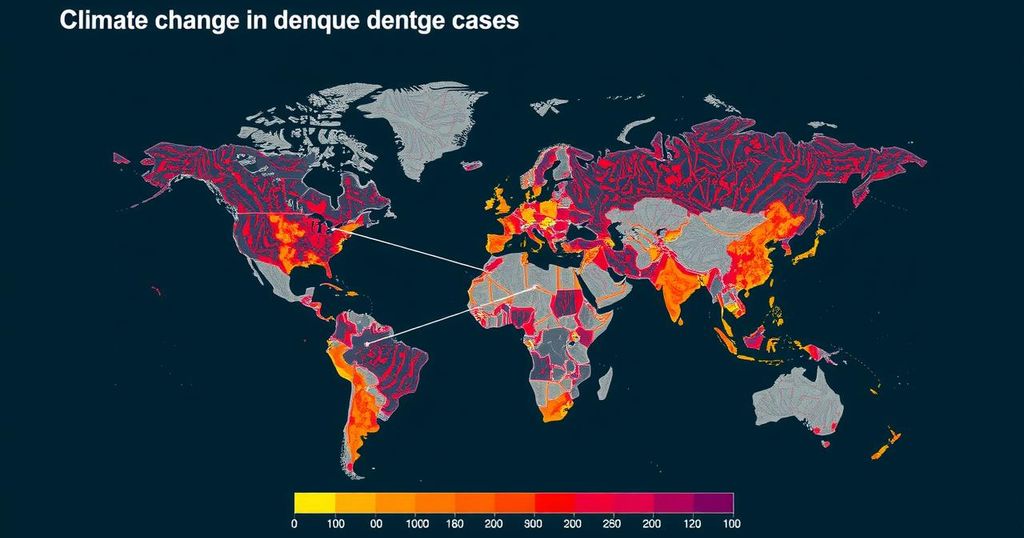A recent study shows that nearly one-fifth of dengue fever cases globally can be attributed to climate change. While the disease, transmitted by mosquitoes, is on the rise, new methods like Wolbachia-infected mosquitoes show promise in reducing transmission rates. The research emphasizes the importance of addressing climate issues to combat this escalating health threat effectively.
Recent research indicates that climate change is responsible for approximately 19% of the unprecedented dengue fever cases reported globally this year. Conducted by a team of US researchers, the study highlights the direct influence of rising temperatures on the proliferation of this mosquito-borne disease. With the rise in global temperatures, regions previously unexposed to dengue are now at risk, as mosquitoes are expanding into these new territories. In particular, temperatures between 20-29 degrees Celsius are identified as optimal for the transmission of this viral illness, leading to a significant increase in outbreaks in areas such as Peru, Mexico, Bolivia, and Brazil over the next quarter-century. Dengue fever cases have sharply escalated, with over 12.7 million documented cases this year, nearly surpassing last year’s record. The research also drew attention to the potential of controlling dengue via innovative methods, such as breeding mosquitoes infected with the Wolbachia bacteria, which has shown promise in limiting the transmission of the disease. A successful deployment of Wolbachia mosquitoes in Niteroi, Brazil, demonstrated a 90% reduction in dengue cases during a severe outbreak, illustrating a viable strategy for community protection against this growing health threat.
Dengue fever is a viral illness transmitted by Aedes mosquitoes, primarily affecting tropical and subtropical regions. It has traditionally been associated with warm climates favorable for mosquito breeding and transmission. However, climate change, characterized by rising global temperatures and changing weather patterns, is contributing to the spread of the disease into new geographic areas. Researchers are increasingly focused on understanding the health implications of climate change, particularly how it exacerbates diseases like dengue, driving outbreaks and increasing transmission rates. This emerging body of knowledge is critical for public health planning and response, emphasizing the need for climate-conscious disease management strategies. The study not only evaluates the impact of climate change on dengue transmission but also explores innovative solutions to mitigate its effects.
In summary, substantial evidence suggests that climate change significantly enhances the proliferation of dengue fever, increasing the risk of outbreaks in previously unaffected regions. This alarming trend underscores the urgent need for climate action to curb future disease spread. Moreover, initiatives such as the deployment of Wolbachia-infected mosquitoes provide promising tools to combat dengue and protect public health against the backdrop of a warming planet. Continued research and strategic planning are essential to address the health challenges posed by climate change.
Original Source: www.barrons.com






